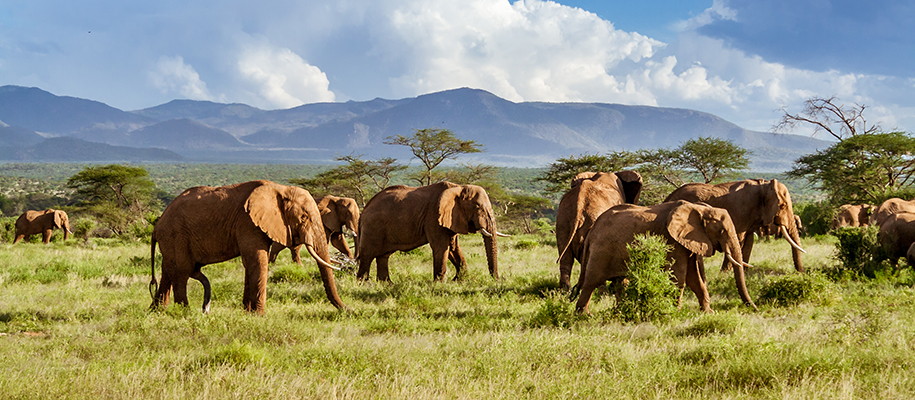Are you someone who loves wildlife and nature and wants to experience conservation work firsthand? Have you ever considered taking your gap year abroad and learning about wildlife in South Africa? Gap years are becoming increasingly popular all over the world. There’s a good chance you’ve heard of someone taking time after high school or college graduation to travel, do an internship, volunteer, or learn new skills. Sometimes people take their gap year right at home, but many use the opportunity to travel and see a unique part of the world. If you’re the adventurous type, here’s a location you should consider to pursue one of these amazing opportunities.
Why do a gap year in South Africa?
South Africa is a popular travel destination for many reasons, from safaris to adventure tourism to Cape Town’s wine country. It’s an incredibly diverse and beautiful area, with 11 national languages (including English) and nine unique ecosystems. The country is ranked as the third-most biodiverse country in the world—with over 95,000 different species having been recorded! If this sounds like a place you’d like to experience, here are three ways you can spend a wildlife-focused gap year in South Africa.
1. Wildlife research and monitoring
Established conservation organizations often need help monitoring species for research purposes. In South Africa, you could connect with a protected nature reserve that has wildlife like lions, cheetahs, rhinos, rare birds, or other endangered species. It’s quite typical for conservation organizations to collect data on different species within their landscape. Examples of activities include counting the number of individuals in a group, tracking animals through the bush, recording sightings and animal behavior, and other specific topics depending on the organization.
By joining a wildlife research and monitoring program, you can contribute to real, on-the-ground conservation work. You’ll also gain new skills, like using a telemetry device to track a collared elephant, inputting data into a GIS system for mapping movement, or estimating population growth and change. This is a great option for someone who wants to study the fields of science, biology, or conservation.
Related: 4 Easy Ways Students Can Help Save Endangered Species
2. Conservation-focused internships
Gaining some real work experience is important if you’re looking to start a career in conservation. Internships provide the ideal setting to gain valuable skills, earn new accolades for your résumé, and see what real conservation work entails. As an intern, you might oversee volunteers, plan data collection, conduct invasive species removal, manage databases for wildlife research, or assist with wildlife rehabilitation. It really depends on the needs of the organization. Many conservation organizations in South Africa have set internship programs where you can join them for a few weeks or even a year. These programs are often more structured than volunteer programs and give you the benefit of real work experience.
3. Safari or tour guide qualifications
This one might be a surprise, but did you know you can become a qualified safari guide? Just about anyone can study to become a safari or tour guide. Especially near Greater Kruger National Park, there are a number of programs where you’ll live on a game reserve and learn how to conduct a guided experience around the Big Five (lions, leopards, rhinos, elephants, and buffalo), plus other wildlife. Imagine waking up every day listening to the sounds of lions roaring in the distance, watching antelope herds graze in the open savannah, enjoying vibrant African sunsets, and sitting by a campfire with friends under the stars.
Safari guide courses are typically 60 days to a full year and include textbook studying, practical experience like driving a 4x4 safari vehicle, tracking and interpreting animal behavior, and much more. The skills you learn from these programs also translate well into other tourism, wildlife, or conservation roles.
Related: List of Great Gap Year Programs
How to pursue a wildlife gap year in South Africa
There are many ways to find the ideal organization in South Africa for a gap year experience. From wildlife rehabilitation centers to safari tour groups, there’s an ideal program for your education, career, and self-development goals. Of course, it’s important to support an organization that studies wildlife in an ethical, respectful, and non-invasive manner, so be diligent in your research before applying for a program.
Questions to ask when choosing a program
- Does the organization allow or encourage photos or interactions with captive or wild animals, such as cub petting or riding elephants? This may insinuate that they care more for monetary gain than animal safety.
- If it’s labeled as a wildlife rehabilitation center or orphanage, is this really an accurate declaration? Some organizations take these labels but have unethical practices, so do some extra research before taking it at face value.
- Can you contribute to research, assist with species monitoring, or learn more about wildlife in a hands-on way? Ask questions and seek answers about their real impact on conservation efforts.
- Are they involved with local communities in a positive way? Find out if they work with communities to support improved human-wildlife coexistence without exploiting local populations.
The best way to get answers to these questions is to speak with past participants to hear about their experiences. Join an open day or webinar to hear firsthand from people who have completed the program.
Related: 3 Adventurous Gap Year Programs to Consider
Taking a gap year can be an incredibly unique and life-changing opportunity, and there are so many more programs than you may be aware of. We hope this has helped shine light on some of the possibilities for spending a wildlife-focused gap year in South Africa. Whatever you choose to do, it will be an amazing experience you’ll never forget!
Still not sure about your plans after high school or college? Learn more about why it’s a good idea to take a gap year on CollegeXpress.






